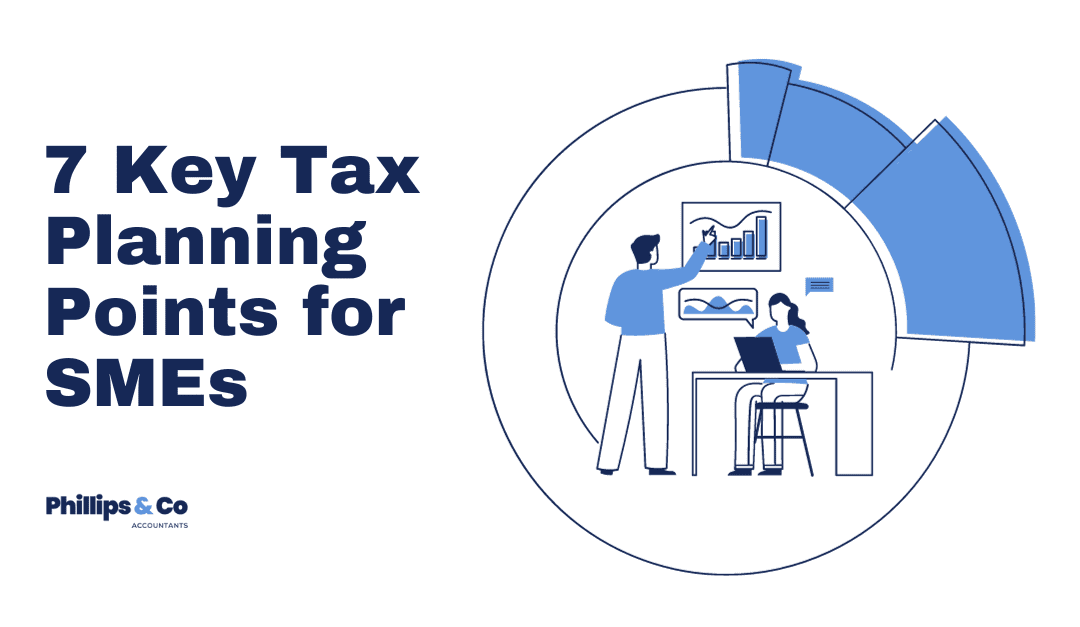Accountants Chester – Tax Tip No. 50
Navigating the Autumn Statement Changes
The recent Autumn Statement introduced several tax changes that could significantly impact small and medium-sized enterprises (SMEs). To help you navigate these changes, we’ve compiled a list of seven key tax planning points for SMEs:
1. Profit Extraction
If your company pays dividends to minor shareholders, prioritize paying dividends before April 6, 2024, to maximize the £1,000 dividend allowance. This allowance is reduced to £500 per person from 2024/25.
2. Selling the Business
If you plan to sell your business in the coming year, be aware that the annual exemption for capital gains tax (CGT) will be reduced from £6,000 to £3,000 per person from April 6, 2024.
3. Agricultural Land
Agricultural property relief (APR) may not apply to exempt the value of farmland from inheritance tax if the land is used for conservation purposes, such as rewilding or carbon storage. Consult an agricultural land specialist for guidance.
4. Wages and Salaries
Pay close attention to the age requirements for the different statutory wage rates, which change for pay periods beginning on or after April 1, 2024. This ensures compliance with the new rules for employers with younger workers on their payroll.
5. Employer National Insurance Traps
Employers who hire armed forces veterans in their first year of civilian employment can benefit from a zero rate of secondary class 1 national insurance contribution (NIC) on the employee’s pay up to the veterans upper secondary threshold (VUST). The VUST remains frozen at £50,270 per year since its introduction in April 2021.
6. Company Cars
The taxable benefit for a fully electric car has been 2% of the list price for the past two years. However, this is set to increase to 3% in 2025/26 and reach 5% for 2027/28. Review how your company’s electric cars are held to ensure optimal tax treatment.
7. Self-Employed Tax Breaks
Self-employed individuals have three reasons to be optimistic following the Autumn Statement:
- The cash basis will become the default option for drawing up accounts for any size of unincorporated business from the tax year 2024/25, simplifying accounting by eliminating the need to consider accruals and pre-payments.
- The main rate of class 4 NIC you pay will be reduced from 9% to 8% on profits up to £50,270 per year, effective from the 2024/25 tax year.
- Class 2 NIC will be abolished from April 6, 2024.
By understanding and proactively planning for these changes, SMEs can minimize their tax liabilities and ensure compliance with the latest regulations.
For more information, call or WhatsApp on +44(1244) 220-062 . Return to Tax Blog home.
Accountants Chester: Boost Your Business with Expert Support!
Get a FREE Consultation & Tailored Accounting Solutions
Call/WhatsApp: +44(1244) 220-062
Disclaimer
The information contained in this blog is for general guidance only. It does not constitute professional advice and should not be relied upon as such. Always seek tailored advice from a qualified accountant regarding your specific circumstances.

